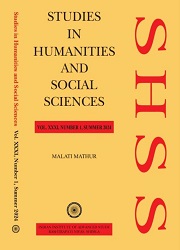Human Values in the Sufi and Rishi Traditions of Kashmir
Insights from Tarikh, Tazkira, and Poetry
Keywords:
Tarikh, Tazkira, Sufi, Rishi, Shruk, Vakh, Harmony, and Inclusivity.Abstract
Documented anecdotes of the Sufis and Rishis in Kashmir reveal an intricate connection between history and ethics. The actions and teachings of the saints reflect core human values defining medieval Kashmiri society. This study examines Tarikh, Tazkira, and poetic texts to uncover how anecdotes and narratives served as conduits for the transcendent moral framework espoused by the Sufi and Rishi saints of the region. It is argued that these texts go beyond mere
historical records; they act as a powerful moral guide intended to inspire and shape society by encouraging the emulation of values including compassion, justice, harmony, empathy, respect, and integrity. Methodologically, this is a qualitative study focusing on primary and secondary sources. Literary theories and historical methods are employed to interpret the sources and draw convincingconclusions. The moral framework articulated by saints encompasses universal human values that transcend the boundaries of religion, region, and historical context, offering relevant and applicable principles across diverse societies and eras. The study underscores the contemporary relevance of human values and highlights the significance of promoting these values in society today, especially across various levels of the educational system.



